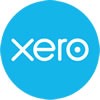High Income Child Benefit Charge - possibly the cause of highest tax rate you will ever pay!

The basics
If you have an individual income over £50,000 you may be subject to the High Income Child Benefit Charge. It may apply if:
- you or your partner get Child Benefit
- someone else gets Child Benefit for a child living with you and they contribute at least an equal amount towards the child’s upkeep
It does not matter if the child living with you is not your own child.
How much is the charge?
If both you and your partner are over £50,000 then the charge falls on the higher income partner.
For every £100 over £50,000 taxable income a charge of 1% of child benefit is levied, so at £55,000 half of child benefit is lost.
Example- a couple receives £2,636 of benefit for their 3 children, they have employment income of £52k and £56k. The charge falls on the higher earner and so 60% of child benefit is lost £1,581. The marginal tax rate on the higher earner is 70% ! For every £1 earned above 50,270 they lose 26p in child benefit, 40 pence tax and 3 pence national insurance.
An example of the apparent unfairness of this charge is that a couple earning £50,000 each will have no charge, where as a couple where one partner earns £60,000 and the other £10,000 will lose all their child benefit, albeit with a much lower household income.
How is it paid?
To pay the tax charge you must register for self assessment and complete a tax return. Another option is to stop getting the benefit, although if income falls below £60,000 you will lose out. Child benefit also helps preserve state pension credit for parents staying at home looking after children.
How can it be avoided or reduced?
Company director/owners may be able to plan their income to cap at £50,000, or have several years at £50,000 then one higher year, preserving most year’s benefit.
Other options may include taking a zero emission vehicle or pension contributions in place of other income, or claiming gift aid deductions.
Marsland Nash considers child benefit and family allowances as part of our complete tax planning for every client.






